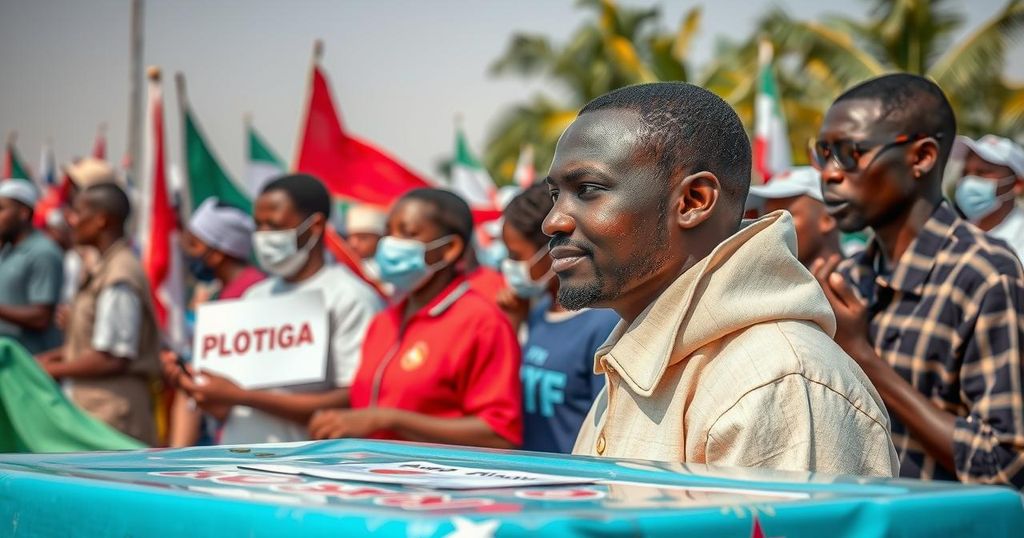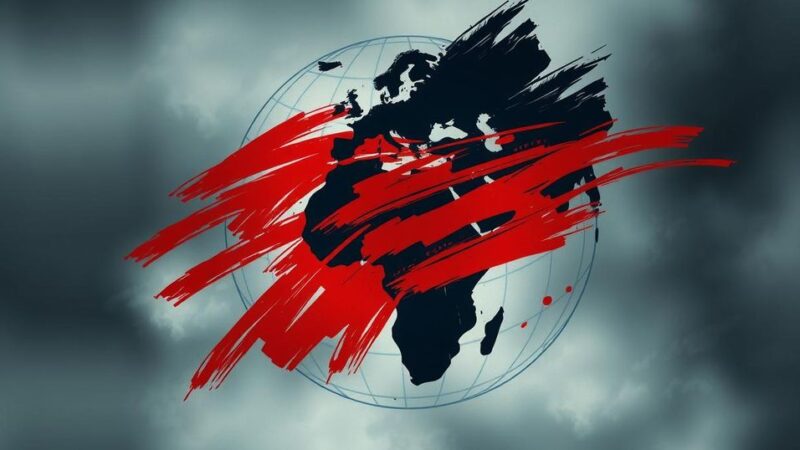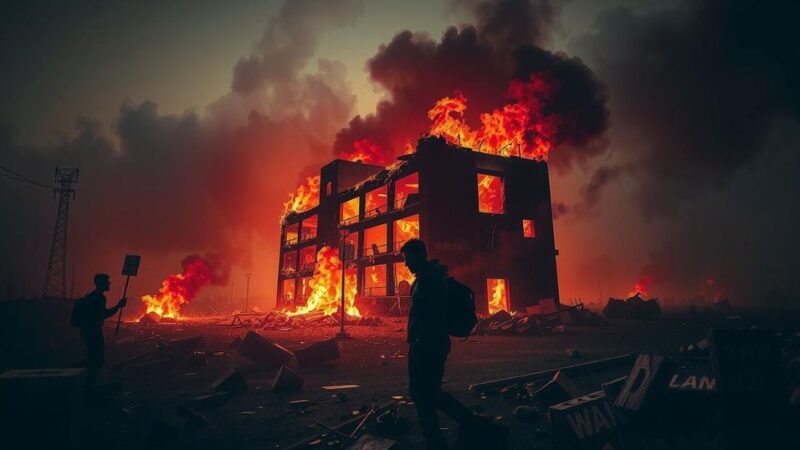In Chad, rising tensions precede local and parliamentary elections as opposition and civil society groups vow to disrupt the voting process. Allegations of election manipulation favoring President Mahamat Idriss Deby have prompted warnings to citizens to stay home on election day to avoid potential violence. Amidst uncertainties surrounding voter safety and governmental trust, the elections mark a significant juncture for Chad’s political future.
Tensions are escalating in Chad as opposition parties and civil society groups are determined to disrupt the upcoming local council, regional, and parliamentary elections scheduled for Sunday. Allegations of potential electoral manipulation favoring the current President Mahamat Idriss Deby abound, prompting these groups to travel to various towns and villages, advising the populace to remain indoors to mitigate the risks of possible street violence.
In the capital, N’djamena, uncertainty looms as citizens express their anxieties regarding the elections. Limana Abba, a twenty-three-year-old student from the University of N’djamena, relayed concerns through a messaging platform. He indicated that the opposition’s campaigns are growing increasingly threatening, leaving him uncertain about whether he and fellow registered voters would feel safe casting their ballots amidst such hostility.
The term “civil society” in Chad refers to organizations sanctioned to enhance governance and advocate for human rights and democratic values. However, it remains ambiguous whether the groups inciting violence qualify under this definition. Irrespective of their status, Abba highlighted doubts over the military and police’s ability to ensure voter safety, despite governmental assurances of protection.
Chadian officials have reported the deployment of government troops and police to protect civilians and prevent what they describe as potential armed disruptions by dissatisfied citizens. Meanwhile, opposition factions and coalitions are conducting continuous campaigns urging the public to boycott the elections, citing a lack of trust in President Deby, who is perceived as wishing to extend his father’s long-standing rule.
Soumaine Adoum, spokesperson for Wakit Tama, a coalition of over one hundred groups, emphasized at a press conference that Chadians should stay home on the election day as a protest against ongoing armed conflicts, corruption, and governmental repression. He criticized the Elections Management Body (ANGE), asserting that the integrity of the elections is compromised given Deby’s alleged preparations to manipulate the process, reminiscent of the recent presidential election.
Despite fervent denials from Deby and the ANGE regarding any election rigging, the body continues to assert its commitment to conducting free and fair elections, devoid of governmental meddling. In an effort to galvanize the public support, the elections management body has encouraged citizens to ignore threats and participate in the electoral process.
In the lead-up to the elections, numerous opposition and civil society members have faced arrests, with government officials indicating that these actions follow complaints from the ruling Patriotic Salvation Movement concerning disruptions to their campaign activities.
These local, regional, and parliamentary elections are significant as they mark the conclusion of Chad’s three-year transitional period initiated after the death of the long-term President Idriss Deby Itno in April 2021. The legislative elections are intended to restore the National Assembly, which was dissolved following the military takeover in 2021. Officials have announced that military personnel will cast their votes on Saturday, ensuring readiness to assist in maintaining order during the civilian elections on Sunday.
Chad is presently navigating a critical juncture in its political evolution, marked by heightened tensions surrounding its upcoming elections. The instability is primarily fueled by opposition groups and civil society organizations voicing serious concerns over the integrity and authenticity of the electoral process under President Mahamat Idriss Deby’s administration. The backdrop of recent political history, including the death of long-standing President Idriss Deby Itno and allegations of electoral manipulation, contributes to the citizens’ apprehensions and resistance against participating in the elections, which are perceived as compromised.
The upcoming elections in Chad are shrouded in controversy, with opposition groups and civil society organizations committed to disrupting the process due to fears of government manipulation that favor the current regime. As tensions escalate, the uncertainty regarding voter safety and integrity of the elections remains palpable. The situation underscores a critical struggle for democracy and governance in Chad, highlighting the deep-seated mistrust between the citizens and government officials. With the government making efforts to quell unrest and protect voters, the outcome of this electoral process will significantly affect Chad’s political landscape moving forward.
Original Source: www.voanews.com







